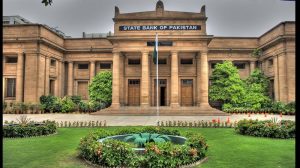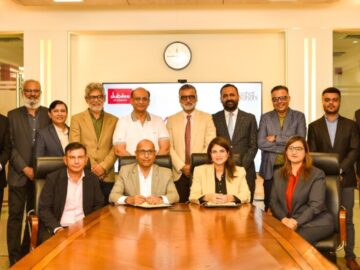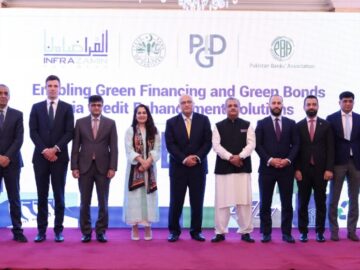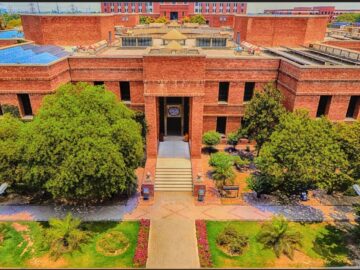
The Honorable Prime Minister of Pakistan, Mr. Imran Khan, launched the completion of the first phase of Pakistan’s Instant Payment System, Raast, in a ceremony held in Islamabad and hosted by the State Bank of Pakistan (SBP). Raast is an initiative of SBP under which it has developed Pakistan’s first instant payment system in collaboration with Bill & Melinda Gates Foundation and Karandaaz, Pakistan. Raast is an accomplishment of one of the milestones of SBP’s broader strategic agenda of digitalization and increasing financial inclusion in the country.
Speaking at the occasion, the Prime Minister congratulated SBP and termed the launch of Raast as an important step towards fulfilling the Government’s vision and commitment to effectively promote and encourage digitalization of the economy. Raast will provide digital, easy-to-use, efficient, and cost-effective payment options to the people of Pakistan and expected to be a catalyst for providing sustainable opportunities to small businesses and individuals. The Prime Minister showed optimism that Raast will help the government resolve current inefficiencies in various types of payments such as salary and pension and further improve disbursements under Ehsaas Program and BISPs, amongst other areas.
In his welcoming remarks, Dr. Reza Baqir informed that the Central Bank has been encouraging technological innovations in banking and payment systems for a long time; however, following the vision of the PM and his support it has stepped up its efforts further to accelerate the pace of digitalization in the country. To modernize the country’s banking and payment systems, SBP has taken various initiatives such as enabling Fintechs and modernizing payments’ infrastructure.
Referring to the National Payments Strategy prepared with the help of the World Bank and announced in November 2019, Governor Baqir remarked that Raast is the first major step taken to implement the strategy. He highlighted that SBP initiated the project Raast, with the support of Bill and Melinda Gates Foundation and Karandaaz Pakistan, after a thorough review of ground realities about prevailing payment habits and in line with international best practices and standards. The state-of-the-art faster payment system will provide cheap and universal access to the people of Pakistan especially those who are financially excluded and less privileged like women.
Dr Baqir told the gathering that the faster payment system will help spur economic growth especially by facilitating small businesses and individuals. He shared SBP’s plan to launch the system in a phased manner, starting with a bulk payment module which will include digitization of dividend payments, salaries, pensions, and other payments of government departments. In the next phases, Raast will digitize payments of micro and small business owners or merchants, who can then pay suppliers on time and fulfill other urgent payment obligations. Similarly, the system will provide seamless Person-to-Person payments that will include features such as sending requests for payments and initiating payments using identifiers such as phone numbers or any other alias.
The UN Secretary-General’s Special Advocate for Inclusive Finance for Development (UNSGSA), H.M Queen Máxima of the Netherlands, also graced the occasion and shared her thoughts. The Special Advocate has supported promoting financial inclusion in Pakistan over the years, including country visits in 2016 and 2019. Pakistan launched its first national financial inclusion strategy (NFIS) shortly before the UNSGSA’s first visit. During her UN country visit in November 2019, the UNSGSA delivered a speech at a ceremony to establish the micropayments gateway now being launched as Raast – Pakistan’s Instant Payment System.
“I am delighted to be here today for the launch of the pro-poor Micropayments Gateway, Raast, and to congratulate you on the draft Banking on Equality Policy. These are important milestones on the journey to a more inclusive financial system and to a digital economy that works for everyone.This is particularly significant for vulnerable segments—such as women and the poor., and especially during this Pandemic. These groups have been disproportionately affected by COVID-19, in part because they were already underserved prior to the pandemic.Based on the last Global Findex data from 2018, men in Pakistan were roughly five times more likely than women to have an account and, of the poorest 40% of the population, just 14% had an account.We know that financial inclusion has a pivotal role to help people deal with the health and economic crisis caused by COVID-19, and to assist them in exploring new opportunities. So these figures provides us an indication of the challenges lying ahead’.
Mark Suzman, CEO of the Gates Foundation, shared a prepared statement, via a video message, from co-chair, Bill Gates, who stated: “I hope that in years to come, we will look back and see this new, digital public good as an important contribution to our shared goal of giving all people the tools they need to lift themselves out of poverty. Our foundation is happy to support accelerating efforts towards digital financial inclusion in Pakistan, just like our continued partnership to eradicate polio, and for the Ehsaas poverty alleviation program.”
The ceremony was attended by dignitaries including federal ministers and secretaries; CEO Karandaaz; CEOs of banks and telcos and representatives of various other stakeholders.










